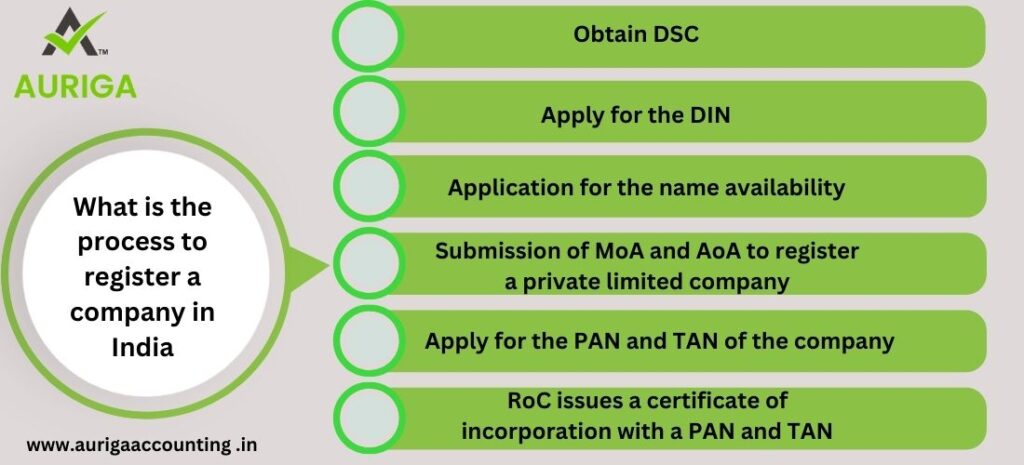
WHAT IS REGISTRATION PROCESS OF A COMPANY
Introduction
ToggleYOU NEED TO KNOW WHAT IS REGISTRATION PROCESS OF A COMPANY
What is registration process of a company The registration involves several key steps. Firstly, choose a suitable business structure, such as a sole proprietorship, partnership, or corporation. Next, select a unique and available business name and register it with the appropriate government authority. Prepare the necessary documentation, including articles of incorporation or partnership agreements. Obtain any required licenses or permits. Submit the completed paperwork along with the applicable fees to the relevant government office. Once approved, the company is officially registered, and it can begin its operations legally. It’s advisable to consult with legal and financial professionals to ensure compliance with local regulations. Visitofficialwebsite
Business Idea and Planning
Define Your Business Idea:
- Clearly articulate the products or services your business will offer.
- Identify your target market and understand its needs and preferences.
- Consider your unique selling proposition (USP) that sets your business apart from competitors.
2. Develop a Comprehensive Business Plan:
- Outline your business goals, objectives, and strategies for achieving them.
- Include financial projections, budgeting, and funding requirements.
- Detail your marketing and sales strategies to reach your target audience.
3. Market Research:
- Conduct thorough market research to validate your business idea.
- Analyze the competitive landscape and identify potential challenges.
- Gather data on consumer behavior, industry trends, and market demand.
4. Legal and Regulatory Considerations:
- Research legal requirements and regulations applicable to your industry.
- Identify any licenses, permits, or certifications required for your business.
- Consider intellectual property protection for your brand, such as trademarks.
5. Risk Assessment:
- Evaluate potential risks and challenges associated with your business.
- Develop risk mitigation strategies to address identified challenges.
- Consider obtaining insurance coverage to protect against unforeseen events.
Choose your business structure
Selecting the business structure will depict your company goals and how it supervises its operations.
Types of Business structure:
- Private Limited Company
- One Person Company
- Limited Liability Partnerships
- Public Limited Company
Business Name Registration
Choose a Unique and Memorable Business Name:
- Select a name that aligns with your brand and is easy for customers to remember.
- Ensure the name is distinctive and not already in use by another business.
2. Check Name Availability:
- Use online databases or contact the relevant authority to check the availability of your chosen business name.
- Some jurisdictions may require a name reservation before registration.
3. Ensure Legal Compliance:
- Confirm that the chosen name complies with legal requirements and restrictions.
- Check for trademarks or existing registrations that may conflict with your business name.
4. Register the Business Name:
- Complete the necessary paperwork to officially register the business name.
- Pay any required fees associated with the registration process.
5. Update Marketing Materials and Online Presence:
- Update marketing materials, including your website, business cards, and promotional materials.
- Establish a consistent online presence using the registered business name.
Appoint Directors or Members
Determine Leadership Roles:
- Clearly define the roles and responsibilities of directors (for corporations) or members (for LLCs).
- Specify the decision-making authority and terms of office.
2. Select Qualified Individuals:
- Identify individuals with the skills and expertise necessary for effective governance.
- Consider the diversity of backgrounds and experiences among board members.
3. Hold Initial Meeting:
- Conduct an initial meeting to appoint directors or members formally.
- Review and approve the bylaws or operating agreement.
4. Elect Officers (for Corporations):
- If applicable, elect officers such as the CEO, CFO, and secretary.
- Clearly define the duties and responsibilities of each officer.
5. Maintain Corporate Records:
- Establish a system for maintaining corporate records, including meeting minutes and important decisions.
- Ensure compliance with any legal requirements for record-keeping.

What is the process to register a company in India
Company registration in India benefits startups since it offers them an advantage over those who have not registered. The process of registering your company is complex and involves many compliances. However, you needn’t worry as long as you have Kanakkupillai as our professionals can help you with every step of the private limited company registration process
- Step 1: Obtain DSC
- Step 2: Apply for the DIN
- Step 3: Application for the name availability
- Step 4: Submission of MoA and AoA to register a private limited company
- Step 5: Apply for the PAN and TAN of the company
- Step 6: RoC issues a certificate of incorporation with a PAN and TAN
Documents Required for Online Company Registration
In India, private limited company registration online cannot be done without proper identity and address proof. Listed below are the documents accepted by the MCA for the online company registration process:
Identity and Address Proof
- Scanned copy of PAN card or passport (foreign nationals & NRIs)
- Scanned copy of voter ID/passport/driving licence
- Scanned copy of the latest bank statement/telephone or mobile bill/electricity or gas bill
- Scanned passport-sized photograph specimen signature (blank document with signature [directors only])
Registered Office Proof
- Scanned copy of the latest bank statement/telephone or mobile bill/electricity or gas bill
- Scanned copy of notarized rental agreement in English
- Scanned copy of no-objection certificate from the property owner
- Scanned copy of sale deed/property deed in English (in case of owned property)
Checklist for Registering a Company in India
As defined by the Companies Act 2013, we must guarantee that the checklist requirements are met.
Two Directors:
A private limited company must have at least two directors, with a maximum of fifteen. A minimum of one of the company’s directors must be a resident of India.
Unique Name
The name of your business must be unique. The suggested name should not match with any existing companies or trademarks in India.
Minimum Capital Contribution:
There is no minimum capital amount for a company. A company should have an authorized capital of at least ₹1 lakh.
Registered Office:
The registered office of a company does not have to be a commercial space. Even a rented home can be the registered office, so long as an NOC is obtained from the landlord.
How can you register a company with two names in India
As per Companies Act 2013, a person can’t register a company with 2 different names in India. Such a concept is not available in India.
There is an online process which needs to be followed for name reservation of company i.e.
- Check the availability of proposed company name on the MCA website
2. The Name of the Company should be unique. It should not be same, similar, identical, or resembling the name of the existing Company or LLP Registered. Phonetically similar names are also to be avoided.
3. The Name of the Company should strictly be in accordance with Rule 8 of The Companies Incorporation Rules, 2014.
4. Make sure that there is no such trademark already registered with the same name.
5. Go to Spice in MCA services and click on new application, proceed further with the application.
6. Summary of the objects to be pursued by the company on its incorporation. Write as “THE MAIN OBJECT CLAUSE OF THE COMPANY IS ATTACHED HEREWITH”
7. Particulars of the proposed or approved name (There are 2 options given for proposing Names for Name application of a Company) as per the preference to be given one should write names.
8. Choose file: The last step for Name reservation of the Company is to browse the attachments to be done; if the name is not registered then only Main Object Clause of the proposed Company is required to be attached.
I wanted to start a service-based company with my brother in India (create a website and application to the clients). I'm planning to start it like a full remote. How should I register my company
If you’re planning to start a service-based company with your brother in India and operate it as a fully remote business, you have several options for registering your company. Here are some of the most common ways to do it:
1. Sole Proprietorship: You can register your company as a sole proprietorship, which is the simplest and most common form of business registration in India. Under this structure, you’ll be the only owner of the company, and you’ll be responsible for all its liabilities and debts. You’ll also have to register for a GST (Goods and Services Tax) number if your annual turnover exceeds Rs. 20 lakhs.
2. Partnership: If you and your brother want to register your company as a partnership, you can do so by creating a partnership deed that outlines the terms and conditions of your partnership. Under this structure, both of you will be the owners of the company and will share the profits and losses. You’ll also have to register for a GST number if your annual turnover exceeds Rs. 20 lakhs.
3. Private Limited Company: Another option is to register your company as a private limited company, which offers limited liability protection to its owners. Under this structure, you and your brother will be directors of the company, and the company will be a separate legal entity from you. You’ll also have to register for a GST number if your annual turnover exceeds Rs. 20 lakhs.
4. Limited Liability Partnership (LLP): An LLP is a hybrid structure that combines the benefits of a partnership and a private limited company. It offers limited liability protection to its owners and doesn’t require them to pay corporate taxes. You and your brother will be designated partners of the LLP, and you’ll have to register for a GST number if your annual turnover exceeds Rs. 20 lakhs.
It’s important to consult with a lawyer or a chartered accountant to understand the legal and tax implications of each structure before registering your company. Additionally, you’ll need to obtain any required licenses and permits, such as a trade license and a PAN card, and register your business with the Registrar of Companies (ROC) in your state or union territory.
How can I register a company in the USA from India
Are you the owner of an Indian startup trying to expand or an established company looking to create a subsidiary in the United States of America? Because of its enormous reach in improving financial transactions, capital investments, and the overall expansion of a firm, the United States is a haven for possible commercial ties. Let’s look at how to register a company in the United States while living in India.
In the United States, any Indian or foreign national can form a C-Corporation (Company) or an LLC (akin to an LLP). There is another corporate kind called an ‘S-Corporation,’ but all stockholders must be US citizens. There are no restrictions on the number of owners of a US Corporation or LLC, the place of origin of the owners, or whether the owners are individuals or corporations.
There are only a few basic requirements we need to create your business for you once you’ve determined what sort of company you’d want to form and which state you’d like to form it in.
Appoint a registered agent
To establish a corporation in the United States, you must first choose a ‘Registered Agent,’ who must have a physical address in the state of formation, be present during business hours, and accept and sign for formal legal and state paper work for the firm. The registered agent serves as a liaison between you and the US Government. They will take papers, scan them, and email them to you; if required, they will send documents that cannot be scanned or require a physical signature by International Mail.
Decide name of your company
You need to choose a name for you name for your company. In US business entity names are state specific. Hence it is most likely that the name you choose is available for registration, unless it is too generic name. The Registered Agent will search the name to see if it is available in your chosen state
Provide the names and addresses of the directors, members, and so forth.
You must give information on the prospective company’s directors and members, as well as KYC papers such as a passport, address proof, ID proof, and so on. Your corporation or LLC can be incorporated in 1-2 days after successful documents and form filling.
Employer Identification Number (EIN)
The federal employer identification number (FEIN), commonly known as a “EIN” or simply “Tax ID Number,” is a number issued by the internal revenue service (IRS) that functions as a company identification number. A registered agent will assist you in acquiring this number from the IRS once your company has been created. To open a bank account in the United States, you will need your EIN.
Open a Bank Account in the United States
A US bank account is required for the following:
- Accepting payments in US dollars;
- To create a merchant account in the United States;
- To open a physical branch office in the United States.
Most banks will demand you to have a physical address in the United States that is not the address of your registered agent. Some banks may acknowledge your registered agent address when opening or creating a bank account, but you must prepare for your account statements as well as other mail to be forwarded through a mail forwarding firm or sent digitally.
Get a US phone number, website, and so forth.
Obtaining a US phone number and developing a website grants digital space in the United States. People currently visit your website rather than your real location. Create a professional-looking website and secure a local phone number in the United States. There are several phone number providers in the United States that will give routing to send your calls to any Indian number you choose, as well as VOIP service, which allows calls to be routed over the internet rather than traditional voice lines.
The Advantages of Creating a US Company from India
- The most significant advantage of incorporating your Delaware business in India is access to venture capital companies and startup investors.
- Annual venture capital investment in businesses in the United States has averaged $130 billion over the last three years. This includes capital from typical venture capital companies, startup syndicates and angel investors.
- In comparison, India is on course to have a $30 billion capital market by 2025.
- The expansion of the Indian capital market is fantastic and deserves to be celebrated. But, in the end, forming a US firm from India offers you immediate access to more capital.
By incorporating in the United States, you have access to the world’s largest startup capital market, allowing you to raise funds from American venture capitalists, angel investors, and syndicates.
how auriga accounting help you to register your company
However, in general, auriga accounting can assist in various aspects of registering a company. Here’s how an accounting service might help in the registration process:
Business Structure Advice:
- Auriga Accounting professionals can provide guidance on choosing the right business structure (sole proprietorship, partnership, corporation, LLC, etc.) based on your business goals, size, and other relevant factors.
2. Registration Paperwork:
- Auriga Accounting can help prepare and submit the necessary paperwork to register your company with the appropriate government authorities. This includes filling out forms, preparing financial statements, and ensuring compliance with local regulations.
3. Tax Registration:
- Assistance with obtaining the necessary tax identification numbers and registering for various tax obligations.
4. Compliance Requirements:
- Keeping you informed about ongoing compliance requirements and deadlines, such as filing annual reports, tax returns, and other documentation.
5. Record Keeping and Accounting Systems:
- Setting up effective record-keeping systems and accounting practices to ensure accurate financial reporting.
6. Financial Planning:
- Offering financial advice and planning to help your business succeed and grow.
7. Audit and Assurance Services:
- For larger companies, accounting firms may offer audit and assurance services to ensure financial transparency and compliance.
8. Payroll Services:
- Handling payroll and related tax obligations, ensuring that your employees are paid accurately and on time.
Before engaging any accounting service, it’s important to research and verify their reputation, experience, and expertise. Consider reading reviews, asking for referrals, and ensuring that the firm is knowledgeable about the specific requirements for registering and running a business in your jurisdiction.
Please note that the specifics can vary depending on your location and the nature of your business, so it’s advisable to consult with a professional familiar with the regulations in your area.












